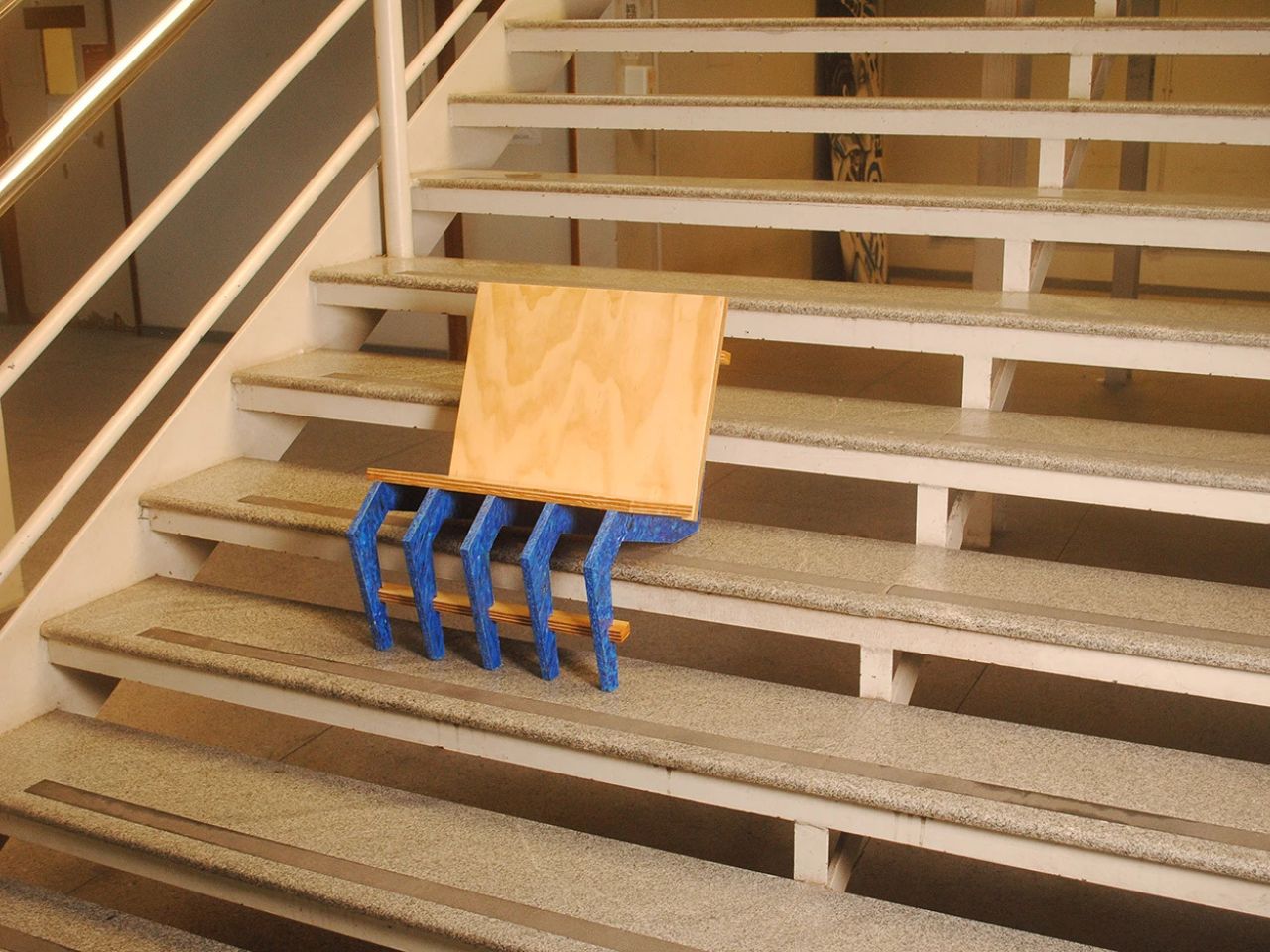Few objects capture the balance of simplicity and innovation quite like the ModusChair. Born from the original 2019 chair by Matheus Gouvêa Servare, this reimagined version translates the spirit of its predecessor into a model designed for modern production, accessibility, and sustainability. The redesign embraces the precision of CNC milling and the ingenuity of interlocking joints, eliminating the need for nails, screws, or glue. The result is a piece of furniture that is both mechanically elegant and remarkably approachable.
At first glance, the ModusChair seems almost minimalist in its construction. Built from just five ribs, a seat, and a backrest, it celebrates restraint while ensuring comfort and usability. Its clean geometry and structural efficiency give it a distinctive identity, functional yet quietly striking. By relying on interlocking joints, the chair not only simplifies assembly but also makes disassembly intuitive, reinforcing its adaptability for diverse environments.
Designer: Arthur Carvalho
While the ModusChair maintains the DNA of Servare’s original concept, a chair designed to be used comfortably on stairs, its new form expands the idea into something more versatile. It is no longer confined to a single setting but becomes a modular seating solution that can adapt to the shifting needs of public and private spaces alike. Whether installed in amphitheatres, auditoriums, or stairway seating areas, the chair can be securely positioned on most stair structures, offering stable and ergonomic seating without altering the architecture.
One of the most defining characteristics of the ModusChair is its open-source design. By making its files publicly accessible, the project democratizes furniture-making, allowing students, hobbyists, and workshops to reproduce, adapt, or reinterpret the design. This approach transforms the chair from a closed, finished product into a platform for experimentation and participation, fostering a design culture that values inclusivity and shared creativity.
In a time when sustainability is more than a buzzword, the ModusChair proves that eco-conscious design can also be elegant. Its flat-pack format not only reduces shipping costs and environmental impact but also minimizes storage requirements. CNC milling ensures precise material use, cutting down on waste. The absence of adhesives or hardware means that at the end of its life cycle, the chair can be more easily recycled. Together, these qualities align the ModusChair with the principles of circular design, ensuring it leaves a lighter footprint on the planet.
Beyond its open-source and sustainable ethos, the ModusChair shines in its practical usability. Its structure is lightweight, making it easy to carry and reposition, whether by an individual user or within large institutional settings. Combined with its flat-pack design, this makes it both highly transportable and space-efficient. Assembly requires no specialized tools and can be completed in minutes, while disassembly is just as straightforward. In effect, the ModusChair becomes a truly mobile piece of architecture, capable of adapting fluidly to the user’s context.
Ultimately, the ModusChair is more than a chair; it is a statement about what furniture can and should be in the 21st century. It brings together digital fabrication, open-source accessibility, sustainability, and mobility into a singular, cohesive vision. For designers, it serves as a case study in restraint and innovation. For institutions, it offers a scalable, cost-effective seating solution. And for everyday users, it delivers comfort, portability, and ease.
The ModusChair reminds us that furniture does not have to be static or exclusive. It can be dynamic, inclusive, environmentally responsible, and delightfully simple. In doing so, it redefines the act of sitting, not as a passive experience, but as an invitation to build, share, and rethink design itself.
The post Sustainable, Open-Source Furniture That Anyone Can Build first appeared on Yanko Design.

